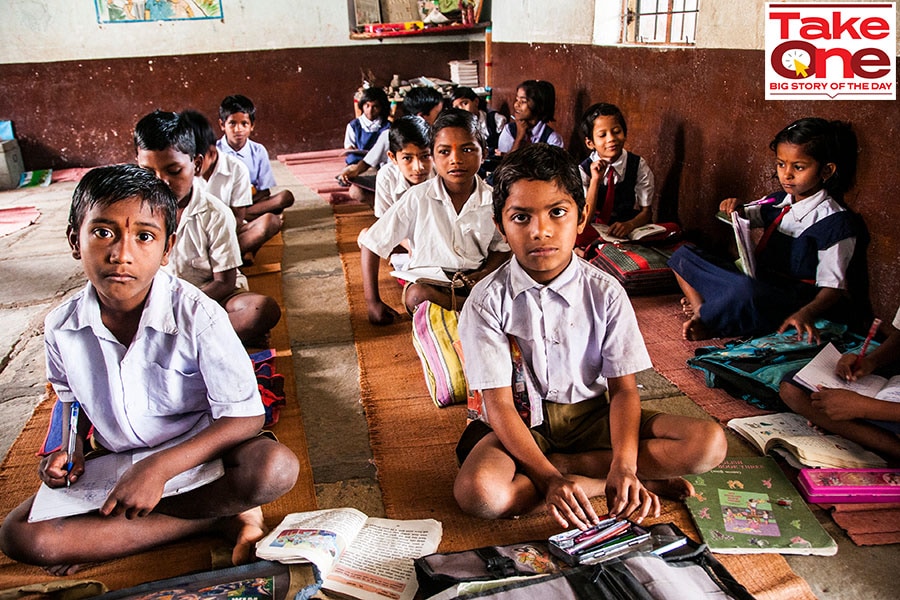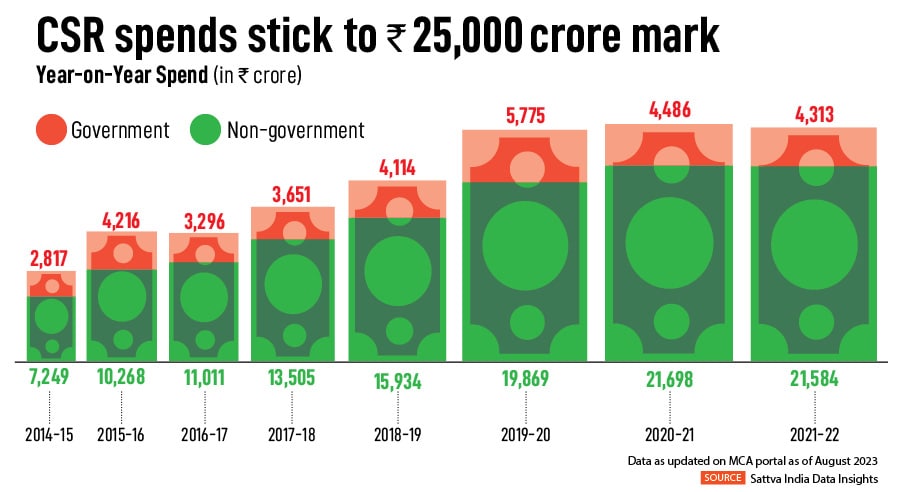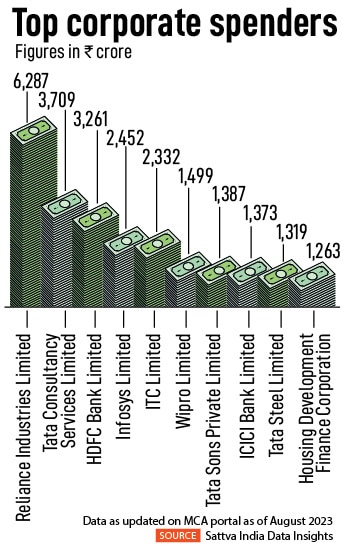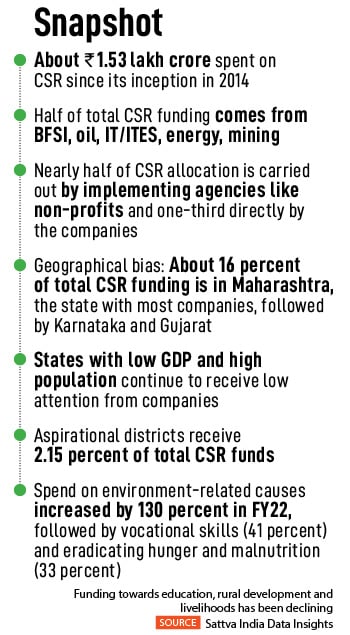
When will Indian CSR come of age?
The priorities of corporate giving are changing, one example of which is reduced funding towards education and increased priority to environment, as per recent MCA data. Companies are trying to make more long-term bets, but there's more to be done to make this money count
 The CSR outlay toward education fell from Rs 7,450 crore in FY20 to Rs 6,683 crore in FY21 and Rs 6,351 crore in FY22, says a new report by Sattva Consulting, a social enterprise working with non-profits and corporates to implement CSR projects.
Image: Shutterstock
The CSR outlay toward education fell from Rs 7,450 crore in FY20 to Rs 6,683 crore in FY21 and Rs 6,351 crore in FY22, says a new report by Sattva Consulting, a social enterprise working with non-profits and corporates to implement CSR projects.
Image: Shutterstock
Things have changed for Aakash Sethi in the wake of the Covid-19 pandemic.
He is the CEO of non-profit Quest Alliance, which uses technology tools to improve the quality of primary and secondary education in India. The organisation is present in over 4,000 schools across states including Karnataka, Odisha, Gujarat, Jharkhand, Telangana and Andhra Pradesh, has worked with more than 70,000 educators and reached close to 2 wo million learners over the past 15 years. The annual organisational budget is about Rs 60 crore, about 80 percent of which is received through corporate social responsibility (CSR) funds.
Over the past two years, however, there has been a 20-25 percent reduction in funding, Sethi says, because companies have increasingly started diversifying their CSR strategy. For NGOs like Quest, he adds, a cut in funding often translates into serious impact on-ground. This could mean “taking some blows” like having to stop ongoing programmes in schools, phasing out projects that might affect their quality, or even invest their own funds to keep things going and make sure they do not lose the trust and relationship they’ve built with teachers and schools on the ground.
CSR data put out by the Ministry of Corporate Affairs (MCA) indicates that outlay towards education, which has traditionally been the most-funded social cause for corporates, has been declining for the past two financial years.
While it remains the top-most cause, followed by health care, the CSR outlay toward education fell from Rs 7,450 crore in FY20 to Rs 6,683 crore in FY21 and Rs 6,351 crore in FY22, says a new report by Sattva Consulting, a social enterprise working with non-profits and corporates to implement CSR projects. On the other hand, outlays towards environment increased by 130 percent in FY22, says the report, which uses the most recent numbers put out by the MCA as of August 2023.





 The report also shows that companies also continue to have a geographical bias in their allocation. Between 2014 and 2022, Maharashtra, which has the highest corporate presence in the country, received about 16 percent of the total CSR outlays. This was followed by Karnataka at 6 percent and Gujarat at 5 percent. States including Manipur, Nagaland, Ladakh, Mizoram and Tripura received less than 1 percent of CSR funds. These states have low per capita GDP, high scores on multi-dimensional poverty index and low scores on Niti Aayog’s sustainable development goals (SDG) index, but see very low CSR investments every year.
The report also shows that companies also continue to have a geographical bias in their allocation. Between 2014 and 2022, Maharashtra, which has the highest corporate presence in the country, received about 16 percent of the total CSR outlays. This was followed by Karnataka at 6 percent and Gujarat at 5 percent. States including Manipur, Nagaland, Ladakh, Mizoram and Tripura received less than 1 percent of CSR funds. These states have low per capita GDP, high scores on multi-dimensional poverty index and low scores on Niti Aayog’s sustainable development goals (SDG) index, but see very low CSR investments every year.  The company’s CSR allocation is in three buckets: About 40 percent of it is towards grants to support social innovation in sustainable mobility solutions, particularly to make last-mile connectivity more accessible to people; about 50-55 percent of the funding goes to the welfare of local communities located around their six factories; 10 percent is a contingency fund for emergency relief measures.
The company’s CSR allocation is in three buckets: About 40 percent of it is towards grants to support social innovation in sustainable mobility solutions, particularly to make last-mile connectivity more accessible to people; about 50-55 percent of the funding goes to the welfare of local communities located around their six factories; 10 percent is a contingency fund for emergency relief measures. 



